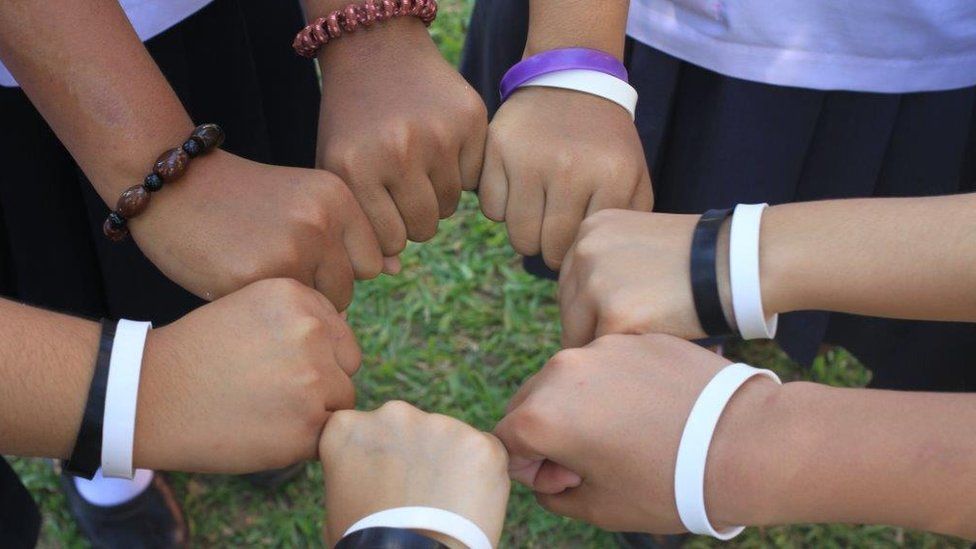Friends 'key to fewer school dropouts'
- Published

Schools should encourage pupils with poor grades to mix with stronger students if they want to keep them in education, suggests a study.
Positive parental and friendship group influences are key to cutting drop-out rates, according to Arizona State University research.
The researchers interviewed vulnerable students at a Chicago high school.
Parents' influence fell if pupils had too much contact with other disaffected students, the researchers found.
The researchers spoke to 125 pupils, aged 15 to 18, at a school with one of the worst drop-out rates in the city and analysed their records.
They concluded that students' academic achievement was directly related to the level of parental involvement "more than any factors".
But they also found that if vulnerable students had too much contact with peers with a negative view of education, "the effect of parental involvement on the dynamics of dropouts becomes negligible".
Waste of time?
In the United States, most students are expected to finish high school in 12th grade, aged 17 or 18.
Anyone who leaves without finishing is termed a "dropout".
In 2012, more than 3 million students dropped out from high school, says the paper, with higher rates among low income groups, including Hispanic and African American communities.
This means around 17,000 students drop out daily and 31 million people could be high school drop-outs by 2022, say the authors.
Being a dropout means lower earnings and greater reliance on welfare and has a knock-on effect on the wider economy, says the paper.
"This is a problem we can't afford to accept or ignore," according to President Obama in 2010, quoted in the paper.
The 125 students were asked about parental involvement and peer influences, including numbers of friends who had dropped out and these friends' attitudes to school.
According to the study, almost half "were in frequent contact with individuals who think that attending school is a waste of time".
The study found that if vulnerable students were identified early and parents increased their involvement, their numbers of disaffected friends would fall.
But if intervention was left until until students were actively failing at school, attempts at parental guidance were futile.
The researchers advise schools with high drop-out rates to encourage vulnerable students to mix with a wider group of pupils, not just other vulnerable or failing pupils, while fostering parental involvement.
"Then they can achieve sustained reduction in the number of dropouts," they conclude.
The study is published by the Royal Society in the journal Proceedings A.
Join the conversation - find us on Facebook